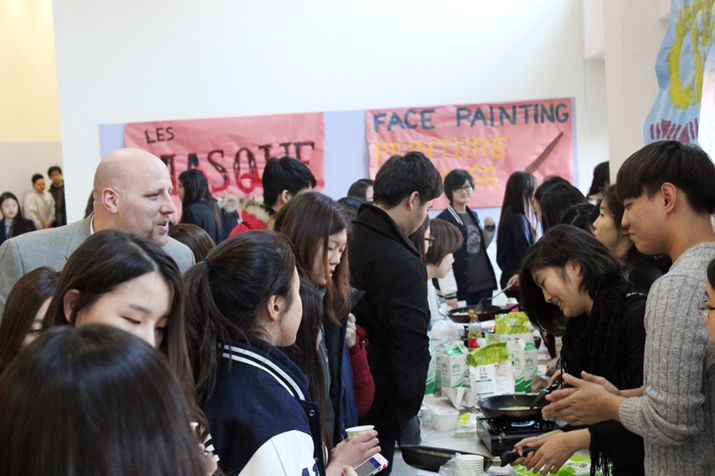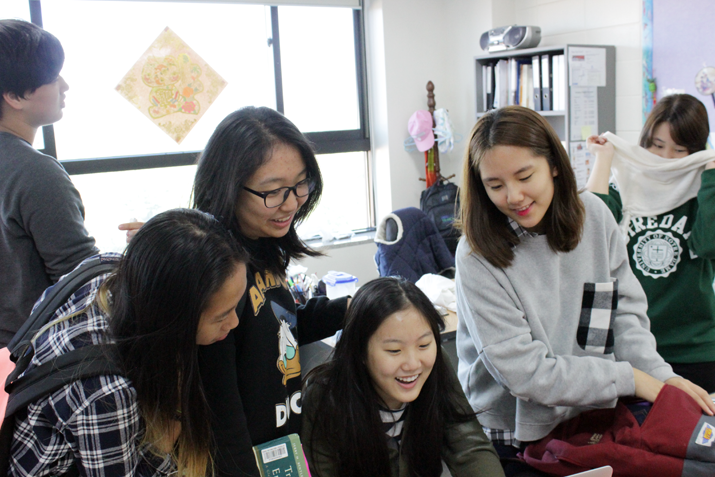Wining and dining, gift giving, and personal solicitation have long been part of an everyday regimen in achieving successful social life in Korea. At what point does bringing gifts to show gratitude turn into a sign of illicit solicitation? In the midst of the sparking controversy over Kim Young-ran Act (an anti-graft law drafted to address rampant bribery and corruption issues), this question helps understand many reasons for public confusion that came from the clash between a notion of gift giving as a tradition and a call for generating a more just society.
According to the ruling of the Constitutional Court, public officials, school teachers, and any civic individuals are capable of being arrested, should they receive gifts in any form that exceeds 1 million won. Also, persons convicted of accepting such endowment or the equivalent monetary value will be sentenced to up to three years in prison—a legislation that sets KRW 30,000 as the maximum value of one meal in work-related environments, KRW
50,000 for gifts of any kind, and KRW 100,000 for gifts dealt with personal events such as weddings.

[students providing handmade snacks for the teachers and other students during last year’s KIStival (PC: Joey Park)]
Many ordinary individuals in Korea are experiencing sweeping changes in their day- to-day lives. Students are no exception. As anti-graft law affects a small student community in the Korea International School, the entire relationship between the faculty and students are experiencing drastic alterations. Expressing their personal concerns, teachers and students alike broached their opinions on the anti-corruption law coming into effect from October 2016.
“Bribery is constantly taking place in Korea. Teachers were frequently solicited by parents to write good recommendations for their children. They are exposed to opportunities for being bribed. This unjust social practice must be reformed. So the anti-graft law is an appropriate measure for the country. This should be welcome in KIS as well.” Minoo Yun, a fellow junior noted.
Mr. Reschke, who is an AP Economics teacher, stated that the school community should be exempted from the act. “As one who coaches a sports team and writes letters of recommendation, I understand the students’ passion to lead and succeed. Small gifts should be allowed as a token of gratitude. We teachers are professionals after all and clearly use discretion when receiving gifts at a reasonable price. Therefore, I don’t believe bribery is a serious issue here in KIS.”

[Students enjoying each other’s company in Chinese class (PC: Joey Park)]
According to the students, the main point that many are struggling to adapt to is expressing jeong (情: a strong sense of emotional attachment). Korean society is characteristically relationship-oriented. With its long history within the psyche of the Korean people, a prominent sense of compassion and empathy (온정주의, 溫情主義), which underlines showing reciprocal appreciation and gratitude in creating a strong attachment bond, lies at the heart of the senior-junior relationship. In this manner, swapping gifts, sharing food, and cooperating with one another have regularly been viewed as a natural component of any relationship building even among young students in Korea.
Jeong is extremely difficult to be completely removed from Korean society because it is engraved in the hearts of the people as a vital element of their traditional culture. Thus Korean society has but a single solution: becoming adapted to the new situation that the new act brought about, but never forgetting the essence of its customs that teaches us how to appreciate one another.

Ashley Kim
Grade: 11th
Korea International School

